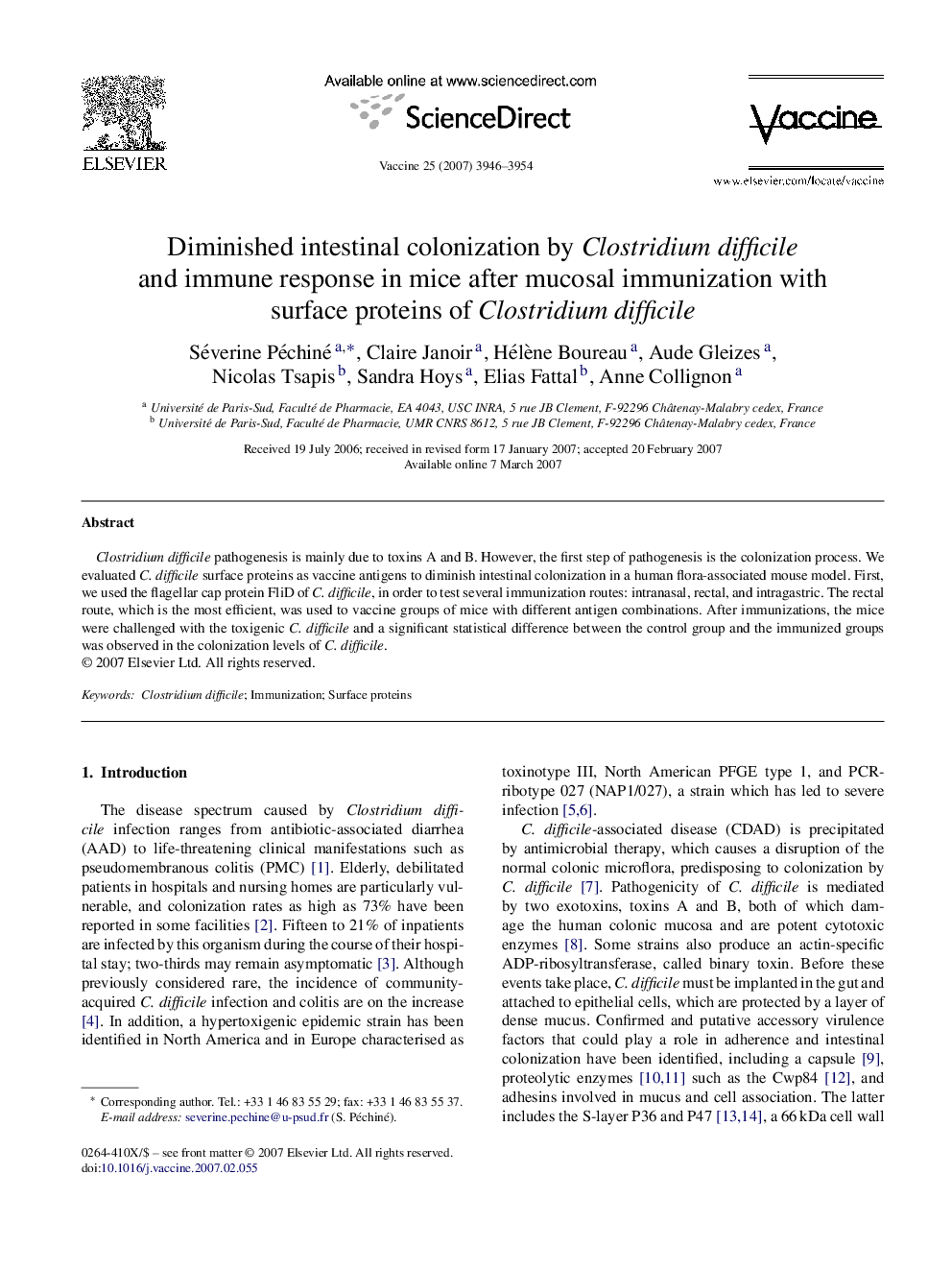| Article ID | Journal | Published Year | Pages | File Type |
|---|---|---|---|---|
| 2406899 | Vaccine | 2007 | 9 Pages |
Clostridium difficile pathogenesis is mainly due to toxins A and B. However, the first step of pathogenesis is the colonization process. We evaluated C. difficile surface proteins as vaccine antigens to diminish intestinal colonization in a human flora-associated mouse model. First, we used the flagellar cap protein FliD of C. difficile, in order to test several immunization routes: intranasal, rectal, and intragastric. The rectal route, which is the most efficient, was used to vaccine groups of mice with different antigen combinations. After immunizations, the mice were challenged with the toxigenic C. difficile and a significant statistical difference between the control group and the immunized groups was observed in the colonization levels of C. difficile.
